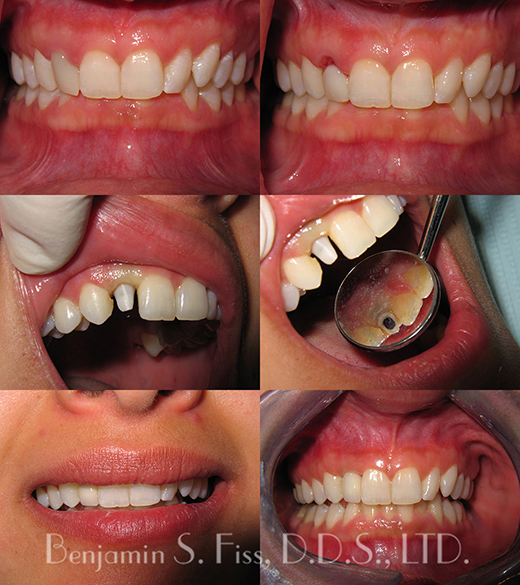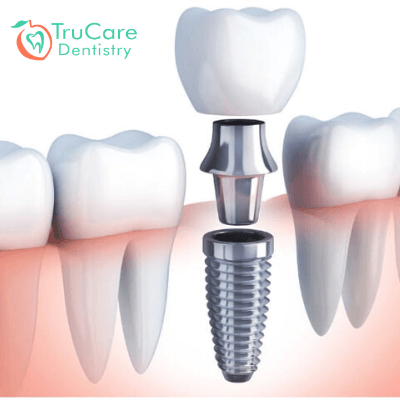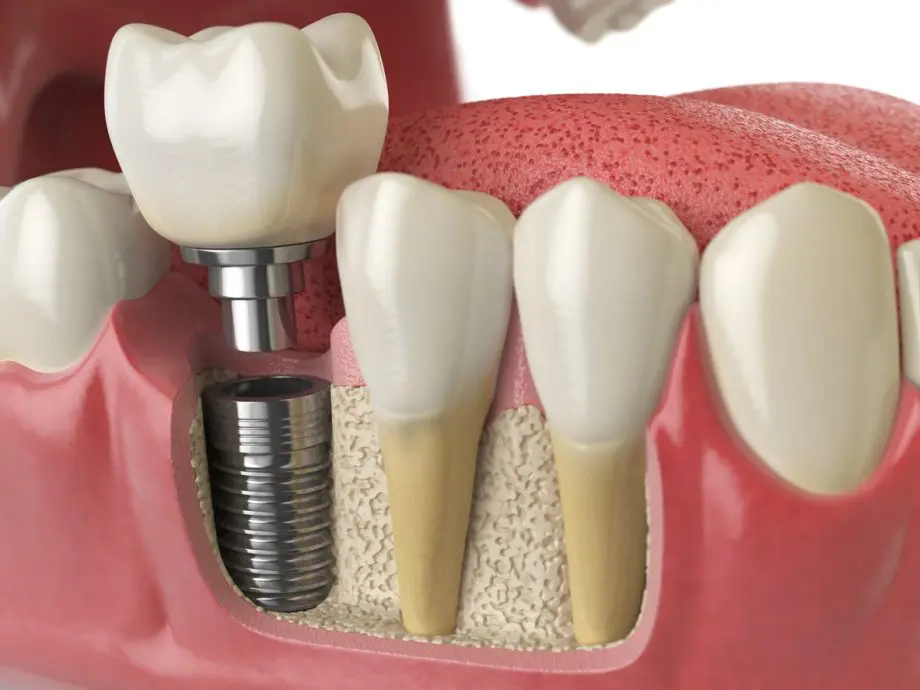Implants Dental Implants Muskegon Heights MI - Dental Implants - Tooth Replacement
Implants Dental Implants Muskegon Heights MI - Dental Implants - Tooth Replacement
Blog Article
Dental Implant Jenison MI - Dental Implants: A 5-step plan to restoring your teeth
When contemplating dental implants, understanding the anesthesia options obtainable is important for a comfortable experience. Patients typically really feel anxious about dental procedures, making effective pain management a check my reference vital part of the treatment plan.
Local anesthesia is the commonest choice for dental implant surgical procedures. This kind of anesthesia numbs a particular area in the mouth where the implant shall be positioned. The goal is to guarantee that the affected person doesn't really feel any pain in the course of the process.
Dental Implants Holland MI - Dental Implants for Multiple Missing Teeth
Dentists incessantly use injectable local anesthetics like lidocaine or articaine. These anesthetics work rapidly and successfully, allowing the dentist to perform the surgery while the patient stays awake and relaxed. This is usually accompanied by sedation to administer anxiety levels.
Sedation dental implants may make the most of a mix of native and sedation choices. Intravenous (IV) sedation could be significantly helpful for sufferers with heightened nervousness or these undergoing extensive procedures. This technique allows the dentist to control the extent of sedation, making the patient drowsy but not entirely unconscious.
Some sufferers might favor oral sedation, which entails taking anti-anxiety medication earlier than the appointment. This approach permits individuals to really feel relaxed and calm as they arrive for the dental process. Dental Implants Near Me Wyoming MI. Although the patient remains awake, they may have little to no reminiscence of the surgery itself
General anesthesia is another viable choice, significantly for complex circumstances. In this example, the patient is entirely unconscious through the surgery, making certain that they expertise no pain or awareness of the process. General anesthesia is usually reserved for extensive surgeries or for patients who can't tolerate native anesthesia.
Dental Implants And Dentures Muskegon Heights MI - How Much Do Dental Implants Cost?
The selection of anesthesia also can depend on particular person patient components, similar to their medical historical past, stage of anxiety, and the complexity of the implant surgery. Dentists usually evaluate these elements to tailor an appropriate anesthesia plan.
A thorough pre-operative consultation is important. During this consultation, sufferers ought to ask questions and categorical any considerations concerning the anesthesia choices. Understanding what to anticipate can considerably reduce nervousness ranges and facilitate a smoother expertise.

Post-operative care is crucial after receiving anesthesia of any kind. Patients are sometimes suggested to have somebody drive them home in the event that they obtained sedation or general anesthesia. This precaution helps guarantee security, as sufferers might really feel drowsy or disoriented afterward.
Patients could expertise some discomfort post-surgery, however this could usually be managed with over-the-counter pain relievers. The dentist will present guidelines and proposals for pain management, allowing for a more comfy recovery.
Dental Implants Near Me Muskegon MI - What Is A Dental Implants?
In the days following the surgery, attending follow-up appointments is crucial for monitoring healing and addressing any potential complications. These appointments give the dentist a possibility to judge the implant site and the effectiveness of the anesthesia used.
Ultimately, the objective of employing the proper kind of anesthesia is to provide a protected, effective, and pain-free experience for patients receiving dental implants. Each patient's wants are distinctive, and the anesthesia plan ought to reflect this individuality.
An informed determination regarding anesthesia can dramatically affect the general expertise with dental implants. Those seeking this therapy should really feel empowered to engage their dentists in conversations about anesthesia choices. A collaborative strategy, where both dentist and affected person work collectively, often results in the best outcomes.
Dental Implant And Bridges Grandville MI - Learn More About Your Implants Treatment
Investing time to grasp the types of anesthesia available can ease considerations and lead to a successful dental implant process. Whether opting for native anesthesia, sedation, or general anesthesia, patients will find a suitable technique that aligns with their consolation level and dental needs.
As more individuals become educated about dental procedures and the associated anesthesia options, the stigma around dental visits continues to decrease. More people are embracing dental health and the life-changing advantages of dental implants. With the right strategy to anesthesia, each the procedure itself and the recovery may be characterized by minimal discomfort and stress.
Cheap Dental Implants Jenison MI - Dental Implants Surgical Placement Videos
By prioritizing effective pain management strategies, dental professionals can considerably improve the general expertise for patients seeking dental implants. Choosing the right anesthesia is a fundamental part of that technique, paving the greatest way for improved dental health and restored confidence with a beautiful smile.
The collaborative effort between dentist and affected person in the end defines the success of dental implant procedures. Emphasizing communication in regards to the forms of anesthesia and what to expect can help mitigate fears. Empathy, understanding, and expert care are the cornerstones of any profitable dental experience.
Moving forward, sufferers can trust their dental care providers to information them in making one of the best decisions concerning anesthesia for his or her specific conditions. Together, they'll work towards attaining optimal results and a positive journey toward new dental health.
- Local anesthesia is often used for dental implants to numb the precise space of the mouth where the process takes place, permitting sufferers to remain awake and cozy.
- Sedation dentistry can be utilized alongside local anesthesia, offering deeper leisure for sufferers who might experience anxiety or discomfort during the process.
- General anesthesia may be an choice for patients undergoing extra complex implant surgical procedures, enabling them to be fully unconscious through the process.
- The choice of anesthesia often depends on the patient’s medical historical past, anxiousness ranges, and the complexity of the implant placement.
- Regional anesthesia, such as a nerve block, can be employed to supply focused pain aid to bigger areas of the mouth during implant surgery.
- Oral sedatives can be prescribed to be taken earlier than the appointment, enhancing consolation levels and decreasing pre-surgery anxiousness.
- Anesthesia options ought to be discussed totally through the consultation part, permitting patients to specific their preferences and considerations.
- Recovery time and post-operative care could differ based mostly on the kind of anesthesia used, highlighting the significance of personalized anesthesia planning.
- Monitoring of vitals is important, particularly when sedation or basic anesthesia is concerned, to make sure affected person security throughout the process.
- Dentists sometimes present detailed aftercare instructions to manage discomfort and additional resources guarantee correct therapeutic, regardless of the anesthesia technique chosen.
What kind of anesthesia is used for dental implants?
Implant Dental Norton Shores MI - How Much Do Dental Implants Cost? A Price Breakdown

What kind of anesthesia is often used during dental implant procedures?undefinedMost dental implant procedures utilize native anesthesia. This numbs the precise space the place the implant will be positioned, ensuring you remain snug in the course of the surgery.
Is sedation dentistry obtainable for dental implants?undefinedYes, many dental practices supply sedation options like nitrous oxide (laughing gas) or oral sedatives. These may help manage anxiety and improve consolation through the process.
How efficient is local anesthesia for dental implants?undefinedLocal anesthesia is extremely effective for dental implants, because it targets the nerves in the space, allowing for a pain-free experience through the surgery.

Can I request common anesthesia for my dental implant procedure?undefinedWhile some dental offices might accommodate requests for general anesthesia, it is usually reserved for complicated circumstances or sufferers with severe anxiousness. It’s best to debate this with your dentist.
Dental Implants Affordable Jenison MI - Dental Implants: A 5-step plan to restoring your teeth
Are there any risks related to anesthesia throughout dental implant surgery?undefinedWhile local anesthesia is taken into account safe, potential risks include allergic reactions or issues related to sedation (Dental Implant Dentures Wyoming MI). Always disclose your medical historical past to your dentist
How long does anesthesia final after dental implant surgery?undefinedLocal anesthesia usually lasts a few hours, though this may vary. You could expertise numbness in the treated area for a brief interval earlier than regular sensation returns.
Will I feel pain during the dental implant procedure?undefinedWith efficient native anesthesia, you shouldn't really feel pain through the procedure. Some strain may be felt, but it shouldn't be painful.
What should I do if I really feel anxious about anesthesia throughout my dental implant appointment?undefinedCommunicate your concerns with your dentist. They can provide information about the anesthesia used and supply sedation choices to assist alleviate anxiousness.
Dental Implants Muskegon Heights MI - Dental Implants - Top Oral Surgeon
Are there any aftercare directions referring to anesthesia post-surgery?undefinedYes, it's essential to keep away from biting or chewing within the numbed area till sensation returns, in addition to to follow any specific post-operative care instructions provided by your dentist.
Report this page